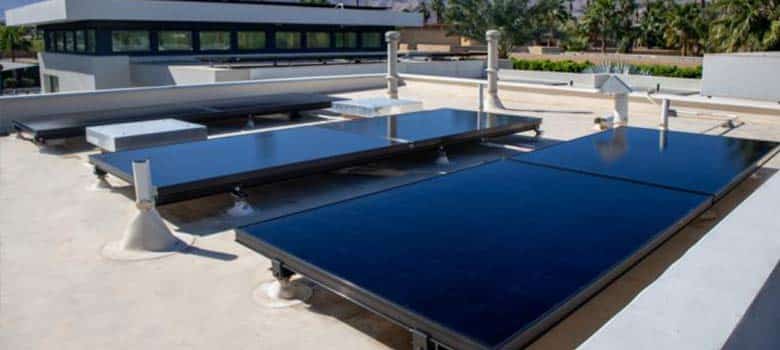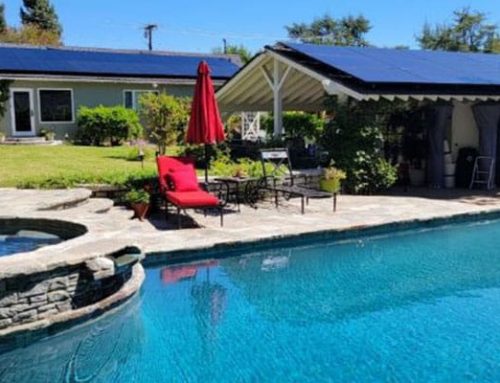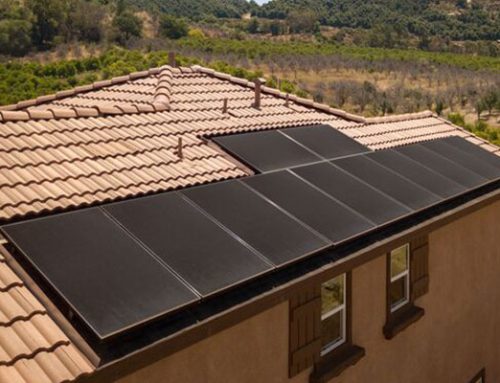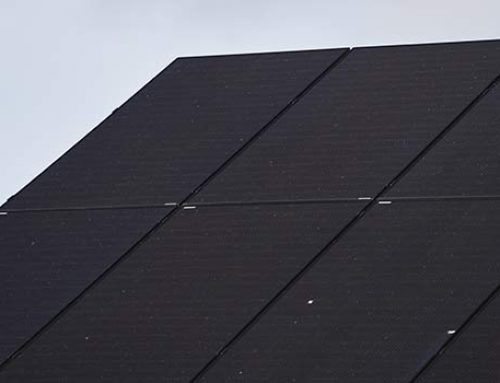The best off-grid solar systems come down to more than price or availability.
In this guide, we’ll help you make the choice that’s right for your budget, lifestyle and needs by diving into the best off-grid solar systems available in Adelaide.
In this guide, we’ll cover:
- The best types of off-grid systems
- Leading brands to consider
- Factors to consider when choosing an off-grid system
- Cost overviews
Choosing the right solar system is not just about picking a product; it’s about embracing a lifestyle change that benefits you and the planet. Each system we discuss has been handpicked for its efficiency, reliability, and ability to meet the diverse needs of Adelaide’s residents.
Whether you’re a homeowner looking to cut energy costs, a business aiming to reduce its carbon footprint, or an adventurer seeking a sustainable solution for your remote cabin, we’ve got you covered.
ENERGY BUSTER TIP:
Before making your decision, it’s important to:
- Consider your specific energy requirements.
- Factor in your property’s location and size.
- Consult with the experts in Adelaide for tailored advice.
Adelaide’s Best Off Grid Solar Systems
Compact Residential Kits
Compact residential kits are designed for the eco-conscious homeowner. These kits are tailored for small to medium-sized homes, offering a perfect balance between efficiency and affordability. They typically include solar panels, a battery storage system, and an inverter, making them a complete solution for residential needs.
Pros:
- Affordable: Lower upfront cost compared to larger systems.
- Easy Installation: Often designed for DIY installation.
- Space-Efficient: Ideal for smaller roofs or limited spaces.
- Expandable: This can be scaled up with additional panels and batteries.
Cons:
- Limited Capacity: May not fully cover high energy demands.
- Battery Dependency: Relies heavily on battery storage for uninterrupted power.
Large-Scale Residential Systems
Large-Scale Residential Systems are the titans of off-grid solutions, best suited for large homes or those with high energy demands. These systems offer a significantly higher energy output and come with advanced battery storage capabilities.
Pros:
- High Energy Output: Ideal for energy-intensive households.
- Advanced Storage: Larger, more efficient battery systems.
- Long-Term Savings: Greatly reduces or eliminates electricity bills.
- Reliability: Capable of sustaining power even during cloudy days.
[POPULAR] How to Increase Solar Panel Output
Cons:
- Higher Cost: More substantial initial investment.
- Space Requirements: Needs more roof or ground space for installation.
- Complex Installation: Often requires professional installation.
Portable Solutions
Portable solutions cater to the needs of outdoor enthusiasts and those requiring power in remote locations. These systems are compact, lightweight, and designed for ease of transport and setup.
Pros:
- Mobility: Easily transportable and great for camping or remote cabins.
- Plug and Play: Simple setup without needing technical expertise.
- Versatile: Usable in various locations and situations.
- No Installation Required: No permanent fixtures are needed.
Cons:
- Limited Power Supply: Not suitable for long-term, high-power needs.
- Durability Concerns: More susceptible to wear and tear due to mobility.
- Weather Dependent: Efficiency can drop significantly in poor weather conditions.
Commercial-Grade Systems
Commercial-grade systems are engineered for businesses and larger establishments. These systems are robust and designed to meet the higher energy demands of commercial operations, offering scalable solutions that can grow with the business.
Pros:
- Scalable Power Output: Can be expanded to meet growing energy needs.
- Tax Incentives: Potential for government rebates and tax benefits.
- Corporate Responsibility: Enhances brand image through sustainable practices.
- Energy Independence: Reduces reliance on grid power and fluctuating energy prices.
Cons:
- Significant Investment: Requires a larger financial commitment.
- Maintenance Requirements: More complex systems need regular maintenance.
- Space and Aesthetics: This may impact the look and space usage of the premises.
Leading Off-Grid Brands in Australia
SunPower
SunPower is renowned for producing some of the most efficient panels in the market. Their panels are designed with cutting-edge technology, ensuring maximum power generation even in limited spaces.
Pros:
- High Efficiency: Excellent power output per square meter.
- Durability: Robust build quality ensures longevity.
- Aesthetic Design: Sleek and visually appealing panels.
- Warranty: Offers one of the best warranties in the industry.
Cons:
- Premium Pricing: Higher cost compared to other brands.
- Availability: May not be readily available in all regions.
LEARN MORE: SunPower Panels: Quick Guide
LG Solar
They are known for their high-quality, reliable panels and battery systems, making them a favourite among homeowners and businesses alike.
Pros:
- Reliable Performance: Consistently high output and efficiency.
- Strong Warranty: Excellent warranty terms for peace of mind.
- Versatile Range: Offers products suitable for various needs and budgets.
- Innovative Technology: Continuously advancing in solar tech.
Cons:
- Cost: Generally more expensive than average market prices.
- Weight: Panels are relatively heavier, requiring sturdier mounting.
Tesla Energy
Tesla Energy, part of Elon Musk’s Tesla, Inc., is famous for its Solar Roof and Powerwall battery system. They combine innovative technology with sleek, modern designs.
Pros:
- Integrated Solutions: Offers both panels and battery storage.
- Aesthetics: Solar Roof tiles blend seamlessly with traditional roofing.
- Smart Technology: Advanced software for energy management.
- Brand Reputation: Associated with innovation and quality.
Cons:
- High Cost: One of the most expensive options available.
- Complex Installation: Installation can be more involved than traditional panels.
- Limited Styles: Solar Roof tiles may not suit all architectural styles.
Enphase Energy
Enphase Energy specialises in microinverter technology, which allows for more efficient and safer renewable energy conversion. They are a top choice for homeowners who prioritize technology and reliability.
Pros:
- Microinverter Efficiency: Improved performance and energy production.
- Enhanced Safety: Reduced fire risk due to lower voltage systems.
- Monitoring and Control: Advanced system monitoring capabilities.
- Scalability: Easy to expand or modify the system.
Cons:
- Higher Initial Cost: Microinverters are more expensive than traditional inverters.
- Complex Setup: This may require more intricate installation and setup.
Factors to Consider When Choosing The Best Off-Grid Systems
Energy Requirements
Start by evaluating your current electricity consumption, which can be found on your utility bills. This assessment gives you a clear idea of your typical energy usage and peak energy periods.
A large-scale residential or commercial-grade system would be more appropriate for households with high energy consumption or businesses with substantial energy needs. A compact residential kit might be more suitable if your energy demands are modest.
Remember, an oversized system leads to unnecessary expenditure, while an undersized one may not meet your energy needs.
If you consume more power during the daytime, renewable energy can be directly used, reducing the reliance on battery storage.
However, a reliable battery system becomes vital if your peak usage is at night.
Budget Considerations
While high-quality systems like those from SunPower or Tesla Energy come with a higher price tag, they offer better efficiency and durability, leading to greater savings over time. On the other hand, brands like LG Solar provide reliable performance at a somewhat lower cost.
Consider the upfront costs, including installation, against the potential energy savings and government incentives or rebates that might be available.
Another aspect of budgeting is the cost of maintenance and the longevity of the system. A cheaper system might entail higher maintenance costs or a shorter lifespan, ultimately affecting its cost-effectiveness.
Evaluate the total cost of ownership, including maintenance, warranty, and the system’s expected life.
A Cost Overview
| System Type | Estimated Cost Range |
| Compact Residential Kits | $3,000 – $7,000 |
| Large-Scale Residential Systems | $7,000 – $15,000 |
| Portable Solutions | $500 – $2,500 |
| Commercial-Grade Systems | $15,000 – $50,000+ |
Understanding the Pricing
- Compact Residential Kits: These systems are designed for smaller homes or those with modest energy needs. The cost includes a basic panel setup and a small to medium-sized battery storage system.
- Large-Scale Residential Systems: Ideal for larger homes or households with high energy demands. The price reflects the larger number of panels, more extensive battery storage, and potentially more complex installation requirements.
- Portable Solutions: Tailored for outdoor enthusiasts or those needing temporary power solutions. The cost is generally lower due to the smaller scale and less complex setup.
- Commercial-Grade Systems: Aimed at businesses and larger commercial operations. The higher price range accounts for the substantial energy output, advanced storage capacities, and possibly custom solutions for business needs.
Embracing Adelaide’s Energy Future
As we reach the end of our journey, let’s recap the highlights that can guide your path to choosing the best off-grid solar system in Adelaide:
- Diverse Options: Adelaide offers a range of solutions, from compact residential kits to large-scale commercial systems, each catering to different needs.
- Leading Brands: Top brands like SunPower, LG Solar, Tesla Energy, and Enphase Energy offer a mix of efficiency, reliability, and innovation.
- Consider Your Needs: Assess your energy requirements, budget, and the available space to find the system that aligns perfectly with your lifestyle or business.
- Incentives and Warranties: Take advantage of government incentives and understand the warranties offered by manufacturers and installers.
- Cost Factor: Costs vary significantly based on the system type, with options available for every budget.
Before making your decision, it’s crucial to consider:
- Personal or Business Energy Profile: Understand your energy consumption patterns.
- Financial Investment: Balance the upfront cost against long-term savings.
- Professional Advice: Consult with experts to get a tailored solution.
Embracing renewable energy is not just an investment in your home or business; it’s a step towards a sustainable and resilient energy future in Adelaide.
Connect with Energy Buster Today to Learn More
Do you still have questions about which off-grid system fits your Adelaide home perfectly? Look no further!
Contact Energy Buster for a personalised consultation that caters to your specific needs. Our team of experts is dedicated to helping you navigate the landscape with ease, ensuring you make the best choice for your lifestyle and budget.







